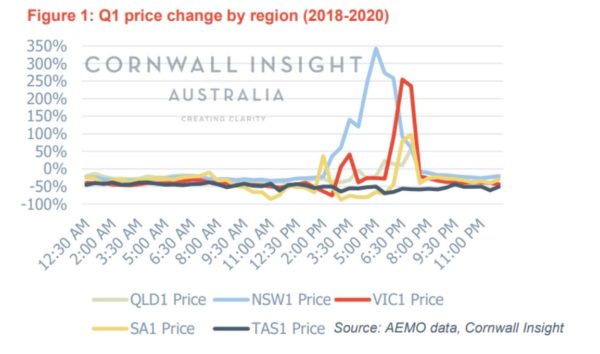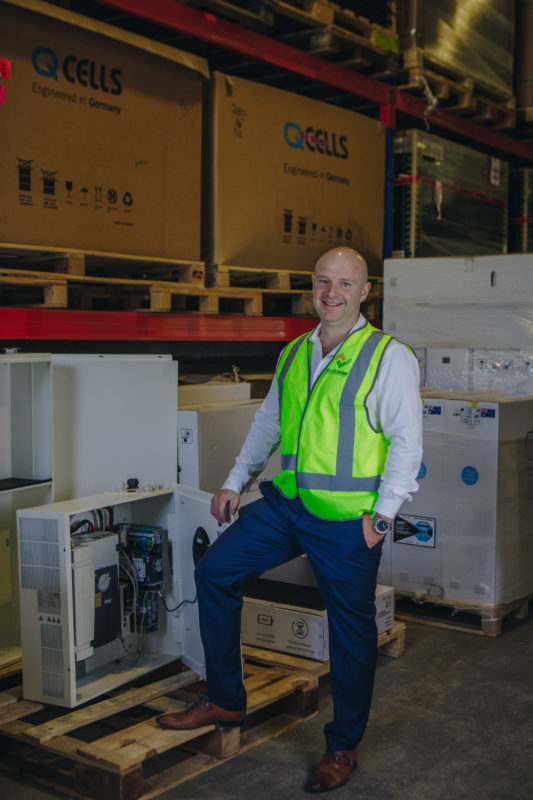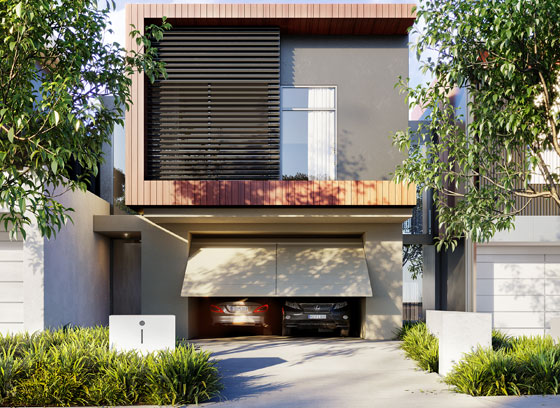From an analysis of the real-time energy consumption of thousands of Aussie households, Natural Solar estimates that homes have increased power usage by 105% due to the impact of Covid-19. This is to say, a great many Aussies are about to receive a straight-up offensive energy bill.
Natural Solar’s data was collected from live monitoring systems nationwide. In March 2019, these systems reported that the average household was using 513kWh monthly; 16.5kWh each day. In March 2020, the average household used 1052kWh, and in April that figure reached 1094kWh; 36.4kWh daily.
It’s bad enough that Netflix thinks it has to ask us if we’re still watching, but an inflated energy bill is adding insult to injury. Covid-19 inspired restrictions means that many Australians have been working from home, home-schooling, home-entertaining, dining in, good lord, some of us have even been forced to talk with our families. These must be the times Thomas Paine wrote about, the times that try our souls.
“This huge rise in electricity use from thousands of Natural Solar customers nationally means we anticipate power bills will spike from a quarterly average of $405.75 to over $800 per household for this Covid-19 affected period,” said Chris Williams, CEO & Founder of Natural Solar. “Some Australian homes that have had historically high power usage can expect their power bills to hit their hip pockets hard,” suggested Williams, “coming in up to $1,800 per quarter.”
Solar Safeguard
There is one significant exception to these incoming bill spikes, homes that have solar and battery storage systems. “We know households with solar and battery power are still likely to save money on their bills during this time,” Williams noted.
Bills Will Swing
Recent research from Cornwall Insight Australia shows that average energy prices have declined significantly in Q1 2020 as compared to 2019, averaging a drop of approximately 46% throughout the NEM. However, in evening peak times (6pm-8pm) prices are still up 50%-350% on 2018 prices.
Moreover, there are considerable fluctuation by state, for instance, despite that 46% decrease across the NEM, New South Wales’s (NSW) prices were higher than 2019. Ben Cerini, Principal Consultant at Cornwall Insight Australia, said that NSW could continue to expect increases, particularly in peak price, due to the large swathes of generational capacity set to retire in the next few years.

The lesson to be learned, a common but no less difficult lesson of the modern milieu, is that old sureties are not so sure. Threatening bushfires, a federal energy policy vacuum, the Covid-19 pandemic, global protest. Change is afoot, and energy security is now a personal responsibility, resilience is key. As Cerini himself notes, the best protection against unpredictably swinging bills is generating your own renewable energy and storing it using a battery, especially to avoid peaks.
Despite our best efforts, Australians are not stupid, and more Aussies are taking up energy storage as its cost gradually falls (though not at the same pace as solar). “There is no doubt that a growing sense of unease has encouraged more people to turn to the certainty of home energy storage,” Williams told pv magazine Australia. We are on the hopeful yet precarious pivot of generational change, believes Williams, and we are beginning to see a greater focus on “energy-efficient homes and mechanisms to reduce sky-high power bills with solar and battery solutions at the epicentre.”

Image: Natural Solar
A Smart City is a Solar City
An energy-efficient home of the kind Williams is speaking is a smart-home. In Sydney’s North-West, large-scale property developer Mulpha is going one better with its development of a ‘Smart City’, consisting of 74 homes with optional solar and battery. Of course, it must be said, all 74 homes have opted for solar and battery systems. 100% uptake. “The current climate indicates there will be a further consumer demand for ready-made smart homes with a renewable energy ecosystem,” says Tim Spencer, Executive General Manager of Mulpha Developments. “…buyers are clamouring to solidify their investment and reduce the running costs of their home. Any opportunity to bring down the cost of their power bills, particularly as usage is rising and the future is uncertain, is one worth taking.”
Spencer told pv magazine Australia that energy underpins every aspect of a Smart City. “Solar energy is the most diversified supply platform there is,” said Spencer, “and its continual supply is all but guaranteed and free! A smart city is based on a lot of things, but if it isn’t harnessing solar and energy storage it certainly isn’t going to be dux of the year!”
The solar and battery option open to the Essentia buyers of Norwest’s ‘Smart City’, is part of the ‘Smart Home Battery Scheme’, a partnership including Natural Solar, Mulpha, and RateSetter. The Scheme, available to those who live or work in Norwest and eligible Hills District residents, allows homeowners to save up to $4,000 on the home solar and battery storage systems.
“The inclusion of renewables in such projects is unstoppable,” concluded Spencer, “as it simply makes economic, social and environmental sense.”
Considering the mist of uncertainty in the air we can be sure that all 74 buyers into the ‘Smart City’ have proven their own smarts. Each smart home within the Norwest innovation precinct will thus receive a 5kWp Natural Solar system coupled with a 10kWh Hybrid battery.
This content is protected by copyright and may not be reused. If you want to cooperate with us and would like to reuse some of our content, please contact: editors@pv-magazine.com.









3 comments
By submitting this form you agree to pv magazine using your data for the purposes of publishing your comment.
Your personal data will only be disclosed or otherwise transmitted to third parties for the purposes of spam filtering or if this is necessary for technical maintenance of the website. Any other transfer to third parties will not take place unless this is justified on the basis of applicable data protection regulations or if pv magazine is legally obliged to do so.
You may revoke this consent at any time with effect for the future, in which case your personal data will be deleted immediately. Otherwise, your data will be deleted if pv magazine has processed your request or the purpose of data storage is fulfilled.
Further information on data privacy can be found in our Data Protection Policy.